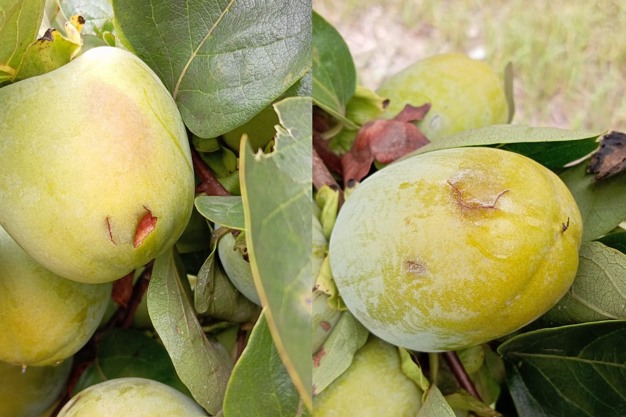According to La Unió Llauradora's first estimate, the hail of the last few days in the Vall d'Albaida region caused more than 1.6 million euros in losses.

The storms affected between 6,000 and 8,000 hectares. Kaki was the most affected crop, as the hail damaged about 4 million kilograms and caused losses of 1 million euros. The storm also had a significant impact on citrus crops, affecting about 2 million kilos of citrus and generating losses of 400,000 euros. The storms also affected vineyards and almond trees, but to a much lower extent in volume and value.
The hail affected the towns of Aielo de Malferit, l'Olleria, Ontinyent, Agullent, Albaida, Montaverner, Adzaneta d 'Albaida, Palomar, Carricola, Bèlgida, and Otos. The damage is very uneven and ranges from 5% to 90%. The storms caused the most damage in Agullent and Ontinyent, where producers lost 100% of their crops.
It's worth noting that hail is a meteorological risk covered by the current agricultural insurance system. La Unió will request that Agroseguro quickly assess the damage to the affected plots.
The organization will also call for a series of measures for affected farmers. These measures include direct aid, the remission of the IBI tax on cultivated plots and buildings on them, a one-year reduction in Social Security contributions, establishing loans with subsidized interest rates, and a series of actions and aid for the affected marketing cooperatives.
The rains were beneficial in the rest of the Valencian Community
In the rest of the Valencian Community, where it didn't hail, the rains helped to alleviate the drought in rain-fed crops. However, in some cases, the damage caused by the drought is irreversible. In this sense, La Unió reiterated its demand for direct aid to alleviate drought losses in wine, table grapes, olive groves, almond trees, and cereals, among other crops.
The rains are also very beneficial for irrigated crops, helping producers save on irrigation, cleaning the trees from the threat of possible pests, and helping recharge depleted aquifers and reservoirs. They also serve to regenerate pastures for livestock farming that have been severely depleted by drought and thus avoid increased costs for animal feed.
For more information: Juanjo Climent
Juanjo Climent
La Unió
Tel.: +34 630 27 33 32
Email: [email protected]
https://launio.org
